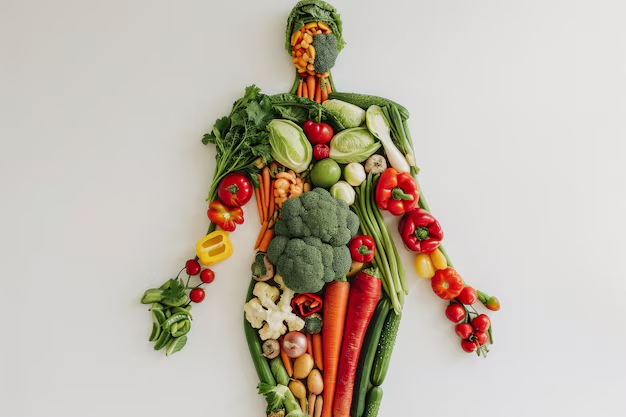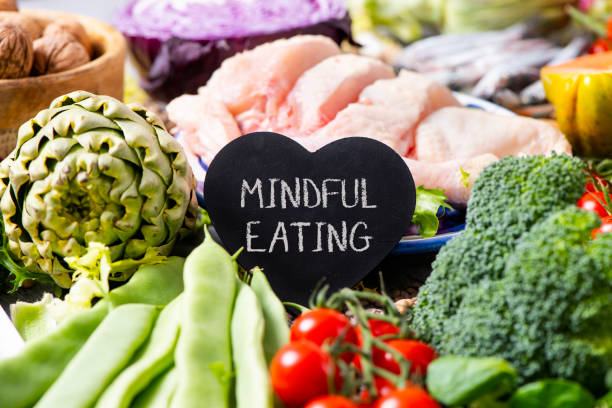Plant-based diet has become a popular choice for many people seeking a healthier lifestyle. From celebrities to athletes to everyday individuals, more people are turning to meals filled with fruits, vegetables, grains, legumes, nuts, and seeds. This growing shift raises a question: is it just a passing trend or something deeper?
Science strongly supports the benefits of plant-based diets. Research shows they can lower the risk of heart disease, diabetes, and other chronic illnesses. They also support weight management, boost energy levels, and improve overall well-being. These health benefits make a plant-based diet a smart and sustainable option.
But the impact goes beyond personal health. A plant-based diet helps the environment by reducing pollution and conserving resources. It also supports ethical values by reducing harm to animals. Choosing a plant-based diet is more than a food choice—it’s a meaningful step toward better health and a better world.
In this article, we’ll explore what a plant-based diet truly means, its variations, and the Top 10 powerful benefits that can transform your life.
🌿 What Is a Plant-Based Diet ?

At its core, a plant-based diet centers around eating foods that mostly come from plants. This way of eating highlights natural, whole ingredients that support better health and overall well-being. Instead of focusing on what to remove, it encourages adding more of the good—foods that grow from the ground and are full of essential nutrients.
This type of diet includes a wide variety of options such as vegetables, fruits, whole grains, legumes like beans and lentils, as well as nuts, seeds, and plant-based oils like olive or avocado oil. These foods are rich in vitamins, fiber, and healthy fats that support energy, digestion, and long-term wellness.
It’s important to understand that a plant-based diet doesn’t always mean cutting out all animal products. Many people still choose to include small amounts of dairy, eggs, or fish while keeping plants as the main focus of their meals. The key is balance and making thoughtful choices.
The overall goal is to eat more whole, plant-derived foods and reduce or avoid processed items and meats. This approach is flexible, sustainable, and can be adapted to fit individual health needs.
There are several variations of plant-based eating:
Vegan: No animal products whatsoever.
Vegetarian: Excludes meat, but may include dairy and eggs.
Flexitarian: Mostly plant-based but allows for occasional animal products.
Whole-food, plant-based (WFPB): Focuses on whole, unprocessed plant foods.
🌟 Top Benefits of a Plant-Based Diet
Let’s explore the top 10 evidence-based benefits of following a plant-based lifestyle:
🧬 Promotes Cellular Longevity and Delays Aging

One of the key plant-based diet benefits is its richness in antioxidants and polyphenols. These powerful compounds are found naturally in fruits, vegetables, whole grains, and other plant foods. They help protect the body from damage caused by harmful molecules known as free radicals.
Free radicals can build up in the body due to pollution, poor diet, and stress, leading to oxidative stress. This stress harms cells and is one of the main causes of aging and disease. Antioxidants and polyphenols in a plant-based diet work to neutralize these harmful effects.
By reducing oxidative stress, a plant-based diet supports healthier aging and lowers the risk of chronic illnesses. It helps the body stay strong, improves skin health, and protects vital organs. Choosing plant-rich meals regularly can lead to long-lasting health improvements and overall well-being—making it a smart and natural choice for better living.
How it helps:
Protects DNA from damage
Reduces the shortening of telomeres (associated with aging)
Supports mitochondrial health (your cells’ energy generators)
Studies suggest that diets high in fruits, vegetables, and legumes can delay age-related diseases and promote longer, healthier lifespans.
🦴 Improves Bone Health Without Excess Dairy
Contrary to popular belief, strong bones don’t always depend on high dairy intake. One of the lesser-known plant-based diet benefits is its ability to support healthy bone density through other natural sources. Many plant foods contain important nutrients like calcium, magnesium, and vitamin K that are essential for bone health.
Leafy greens, tofu, almonds, beans, and fortified plant-based milks offer strong support for maintaining bones. These foods help the body absorb and use calcium effectively without relying heavily on dairy. In addition, a plant-based diet can reduce the loss of calcium from bones caused by excess animal protein.
A well-balanced plant-based diet can be just as effective—if not more—at supporting bone health when compared to traditional dairy-focused diets. By including a variety of nutrient-rich plants, people can enjoy stronger bones and better overall wellness, all while avoiding potential issues linked to high dairy consumption.
Key nutrients include:
Calcium (from kale, broccoli, almonds, fortified plant milks)
Vitamin K (crucial for calcium absorption)
Magnesium (from seeds, greens, legumes)
Research shows lower rates of osteoporosis in people consuming diets rich in vegetables and legumes compared to high-meat or dairy-heavy diets.
🦠 Supports Hormonal Balance

One of the key plant-based diet benefits is its positive effect on hormonal balance. A diet rich in whole plant foods can help regulate hormones naturally, supporting better health for both men and women. For women in particular, this can make a noticeable difference in managing hormonal issues.
Women dealing with conditions like PCOS, menopause, or irregular menstrual cycles may experience relief through a plant-based approach. The high fiber content in plant foods helps remove excess hormones from the body, while healthy fats from nuts, seeds, and avocados support hormone production.
Plant-based diets also reduce inflammation, which plays a role in hormone disruption. By focusing on fruits, vegetables, legumes, and whole grains, women can feel more balanced and energized. With consistent habits, a plant-based lifestyle can help improve symptoms and support a smoother hormonal journey over time.
Why it works:
High fiber helps the body excrete excess estrogen
Cruciferous vegetables contain compounds that modulate estrogen metabolism
Lower levels of animal fat reduce hormone-disrupting compounds
Women who follow plant-heavy diets often report fewer PMS symptoms, more stable moods, and reduced hormone-related acne.
🧂 Lowers Risk of Autoimmune Disorders
Autoimmune diseases such as rheumatoid arthritis, lupus, and multiple sclerosis are often connected to chronic inflammation and gut-related problems. Managing these conditions usually requires a long-term approach that supports both the immune system and overall health. This is where plant-based diet benefits become especially important.
A plant-based diet is rich in anti-inflammatory foods like leafy greens, berries, whole grains, and legumes. These foods help calm the immune response and reduce the inflammation that worsens autoimmune symptoms. They also support gut health by providing fiber that feeds healthy gut bacteria.
Improving gut health can make a big difference in how the immune system behaves. By focusing on natural, whole foods, a plant-based diet may help reduce flares, ease pain, and improve quality of life for those with autoimmune diseases. It’s a gentle yet powerful way to support the body from within.

Plant-based diets may help by:
Reducing systemic inflammation
Improving gut microbiome diversity
Removing common food triggers (like dairy or processed meats)
A review in Frontiers in Immunology found plant-based diets showed potential in reducing the severity of autoimmune flare-ups.
🔥 Reduces Chronic Pain and Inflammation
One of the most helpful plant-based diet benefits is its ability to reduce inflammation naturally. Many plant-based foods, such as berries, leafy greens, turmeric, and nuts, contain powerful compounds that help lower inflammation in the body. This can be especially helpful for people dealing with chronic pain or joint problems.
Inflammation is often the root cause of pain in conditions like arthritis or long-term muscle soreness. A diet rich in anti-inflammatory plant foods can ease stiffness, improve movement, and reduce discomfort over time. Unlike some medications, this approach supports the body gently and naturally.
By choosing more fruits, vegetables, legumes, and whole grains, people can support their joints and feel better daily. A plant-based lifestyle offers a safe and effective way to manage pain while improving overall health. It’s a smart step for anyone looking to reduce pain and live more comfortably.
Anti-inflammatory stars:
Turmeric
Ginger
Berries
Dark leafy greens
Omega-3s from flax and walnuts
People with conditions like fibromyalgia, arthritis, or migraines often find symptom relief through plant-based eating.

🧪 Detoxifies the Body Naturally
Your liver and kidneys are the body’s natural detox systems, working nonstop to filter waste and harmful substances. While detox teas or cleanses aren’t necessary, what you eat plays a big role in how well these organs function. This is where plant-based diet benefits come into focus.
A plant-based diet supports liver and kidney health by providing nutrients and antioxidants that reduce stress on these organs. Foods like leafy greens, beets, berries, and citrus fruits help the body process toxins more effectively and keep these organs working at their best.
Avoiding processed foods and high-fat animal products also reduces the load on your liver and kidneys. With a diet rich in fiber and low in harmful additives, your body’s natural cleansing system stays strong. Choosing more plant-based meals can be a simple yet powerful way to support long-term detox and overall health.
How plant foods help detox:
High fiber binds toxins in the gut and removes them
Cruciferous veggies (like broccoli and Brussels sprouts) support phase II liver detox
Chlorophyll-rich greens cleanse blood and tissues
Unlike fad “cleanses,” a consistent plant-based diet provides real, sustainable detox support every day.

💰 Saves You Money on Groceries and Healthcare
One of the overlooked plant-based diet benefits is how budget-friendly it can be. Many people think eating healthy has to be expensive, but a plant-based lifestyle can actually save money. By focusing on whole, unprocessed foods, it’s easy to eat well without breaking the bank.
Staple ingredients like beans, lentils, rice, oats, and seasonal fruits and vegetables are both affordable and nutritious. These items can be bought in bulk and used in a variety of meals, making it easier to stick to a food budget. Home cooking with plant-based ingredients also helps cut costs on eating out or buying processed foods.
A plant-based diet not only supports your health but also helps your wallet. It proves that healthy living doesn’t have to be costly—just thoughtful. Choosing simple, plant-based meals offers both financial and nutritional benefits for the long term.
Money-saving benefits:
Lower grocery bills (beans and lentils cost less than meat)
Fewer doctor visits due to better health
Reduced need for medications for blood pressure, cholesterol, or diabetes
A study published in The Lancet Planetary Health found that a global shift to plant-based eating could save trillions in healthcare costs over time.
🧘 Improve Physical and Athletic Performance
Elite athletes like Venus Williams, Lewis Hamilton, and Novak Djokovic have embraced plant-based nutrition—and for good reason. One of the top plant-based diet benefits is that it provides clean, efficient fuel for peak performance. These athletes rely on energy, endurance, and quick recovery, all supported by a plant-focused approach.
Plant-based foods are rich in complex carbohydrates, vitamins, antioxidants, and healthy fats. These nutrients help improve stamina, reduce inflammation, and speed up muscle recovery after intense training. A lighter, plant-based meal plan also supports digestion and sustained energy levels throughout the day.
Choosing a plant-based lifestyle doesn’t just benefit everyday health—it can also enhance athletic performance. As more top athletes go plant-based, it’s clear that this way of eating supports strength, endurance, and long-term success. Whether you’re a professional or just staying active, plant-based nutrition can help fuel your best.

Performance perks:
Faster muscle recovery due to antioxidants
Reduced inflammation and soreness
Improved blood flow and oxygen delivery to muscles
Balanced energy levels from complex carbs
Even weekend warriors report better stamina, flexibility, and focus on a plant-based diet.
💡 Encourages Mindful Eating and Lifestyle Habits
One of the most meaningful plant-based diet benefits is how it encourages greater mindfulness in everyday life. Choosing plant-based meals often leads people to think more deeply about what they eat, where it comes from, and how it affects their health and the planet.
This lifestyle supports more than just physical wellness—it promotes sustainability and ethical awareness. People become more conscious of how their food choices impact the environment, animal welfare, and long-term health. Over time, these mindful habits can spread into other parts of life, creating a more intentional and thoughtful approach to living.
By focusing on natural, plant-based foods, individuals often feel more connected to their bodies and surroundings. It becomes easier to make choices that align with personal values. In this way, a plant-based diet isn’t just a change in eating—it’s a step toward a more mindful and meaningful life.
You may find yourself:
Reading food labels more often
Cooking at home with intention
Becoming more aware of food sourcing
Eating with greater appreciation and gratitude
It’s not just a diet—it’s a holistic lifestyle shift toward wellness and awareness.

🏙️ Contributes to Global Food Equity
One of the key environmental plant-based diet benefits is the reduced use of natural resources. Raising animals for food takes up far more land, water, and crops compared to growing plants for people to eat. This makes plant-based eating a smarter and more efficient choice for the planet.
Animal farming not only consumes more resources but also contributes to pollution and greenhouse gas emissions. In contrast, growing plants uses less water and land while producing fewer emissions. By choosing plant-based foods, individuals can help reduce environmental harm and protect natural ecosystems.
Eating more plant-based meals supports a cleaner, more sustainable future. It allows people to lower their ecological footprint without sacrificing nutrition or taste. Shifting toward plant-based living is a simple yet powerful way to care for both personal health and the health of the Earth.
By eating plant-based:
You reduce the demand for resource-intensive animal agriculture
Help conserve global food supplies (more people can be fed with plant foods)
Support a more equitable, sustainable global food system
According to the United Nations, shifting toward plant-rich diets is essential for achieving food security for a growing world population.
📝 Conclusion

Adopting a plant-based diet is more than just a nutritional choice—it’s a powerful lifestyle change with far-reaching impacts on your health, the environment, and global well-being. From reducing the risk of chronic diseases to boosting energy, enhancing digestion, and promoting mental clarity, the plant-based diet benefits are both scientifically supported and widely experienced by people across the world.
Beyond personal health, it contributes to a more sustainable planet and a more compassionate way of living. Whether you go fully plant-based or start by making small changes, each step can make a meaningful difference.
With a growing variety of delicious plant-based options available today, embracing this way of eating has never been easier or more rewarding. If you’re looking for a healthier, more conscious lifestyle, the plant-based diet benefits offer compelling reasons to begin your journey today—one plant-powered meal at a time.
FAQs
❓ 1. What exactly is a plant-based diet ?
A plant-based diet focuses on foods primarily from plants—such as fruits, vegetables, whole grains, legumes, nuts, and seeds—while minimizing or eliminating animal products. It doesn’t necessarily mean 100% vegan; some people still include small amounts of meat, dairy, or eggs, but the majority of the diet comes from plant sources.
❓ 2. Is a plant-based diet safe for children and pregnant women ?
Yes, a well-planned plant-based diet can be safe and nutritionally adequate for people at all life stages, including children and pregnant women. It’s important to include key nutrients like protein, iron, calcium, B12, and omega-3s, which can be obtained through careful food choices or supplementation.
❓ 3. Will I get enough protein on a plant-based diet ?
Absolutely. Many plant foods are excellent protein sources, including beans, lentils, tofu, tempeh, quinoa, nuts, seeds, and whole grains. As long as you’re eating a variety of these foods, it’s easy to meet your daily protein needs without meat.
❓ 4. How quickly can I expect to see health benefits ?
Many people notice changes like improved digestion, increased energy, and better skin within a few weeks. Long-term plant-based diet benefits like lower cholesterol, improved blood sugar, and weight loss often become more noticeable after 2–3 months of consistent eating.
❓ 5. Is eating plant-based expensive or time-consuming ?
Not at all. Staples like beans, rice, oats, and seasonal vegetables are budget-friendly. Meal prepping and simple recipes can save both time and money. Compared to the cost of processed foods and medical expenses, a plant-based lifestyle is often more economical in the long run.


